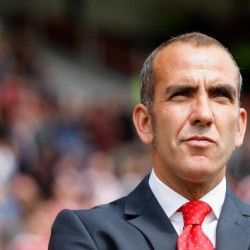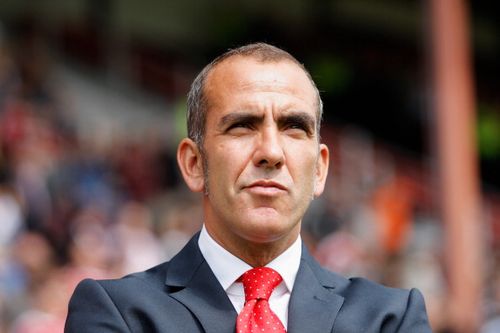
Sunderland's final throw of the dice: O'Neill out, Di Canio in

When Niall Quinn was briefly manager of Sunderland at the start of the 2006 season, he spoke of the club being beset by gremlins. If something could go wrong, it would go wrong. Slumps and negativity had become part of the club’s DNA. In 2001-02 they won three of their last 19 games, presaging a disastrous 2002-03 in which they took a single point in the second half of the season to set what was then a record low points total in the Premier League of 19. In 2005-06, they broke that record, collecting just 15 points in the whole season. In 2008-09, they won one of their last 13 games and the following season they had a run of 14 games without a win. They took one point from nine games early in 2011 and didn’t win any of their last eight last season.
The only way to get rid of the gremlins, Quinn, who was also chairman, decided, was to scare them away, and so he appointed Roy Keane. It was an enormous gamble, but it worked and Sunderland were promoted. Since then, though, the gremlins have returned. Sunderland have taken just three points from their last eight games and relegation has moved from being a distant possibility to something that had come to feel almost a certainty.
Contrary to popular belief, there was no great upsurge of feeling against Martin O’Neill. There was booing after the draw against Norwich – who had played the last hour with ten men – but it was far from a concerted campaign. Almost more worryingly, there was a feeling almost of apathy, as though decline and descent were inevitable. Even O’Neill admitted in a conversation with Short that he thought only ten of the squad were good enough to take Sunderland into the top half of the table.
Ellis Short, the club’s owner, though, cannot be apathetic. Two weeks ago, the club posted losses of £27m. They cannot afford to miss out on the bonanza of the new TV deal next season. Even with parachute payments, Sunderland would make around £40m less next season in broadcasting rights if they were to go down.
That is why he acted. When things go wrong, when there is a seemingly inevitable drift to failure, there are rarely easy answers. By this stage of the season, pretty much the only decisive action an owner can take is to sack his manager. So that’s what Short did. To get rid of O’Neill and appoint a maverick in Paolo Di Canio is a gamble as big as Quinn’s in appointing Keane. There may be a short-term boost. Di Canio may even deliver on the promise he showed while manager of Swindon Town, whom he took to promotion and had in second in League One when he walked out.
But there may also be ructions – the Swindon chief executive described Di Canio’s style as “management by hand-grenade”. Short made his fortune by gambling on hedge-funds: this feels like a desperate final throw of the dice.